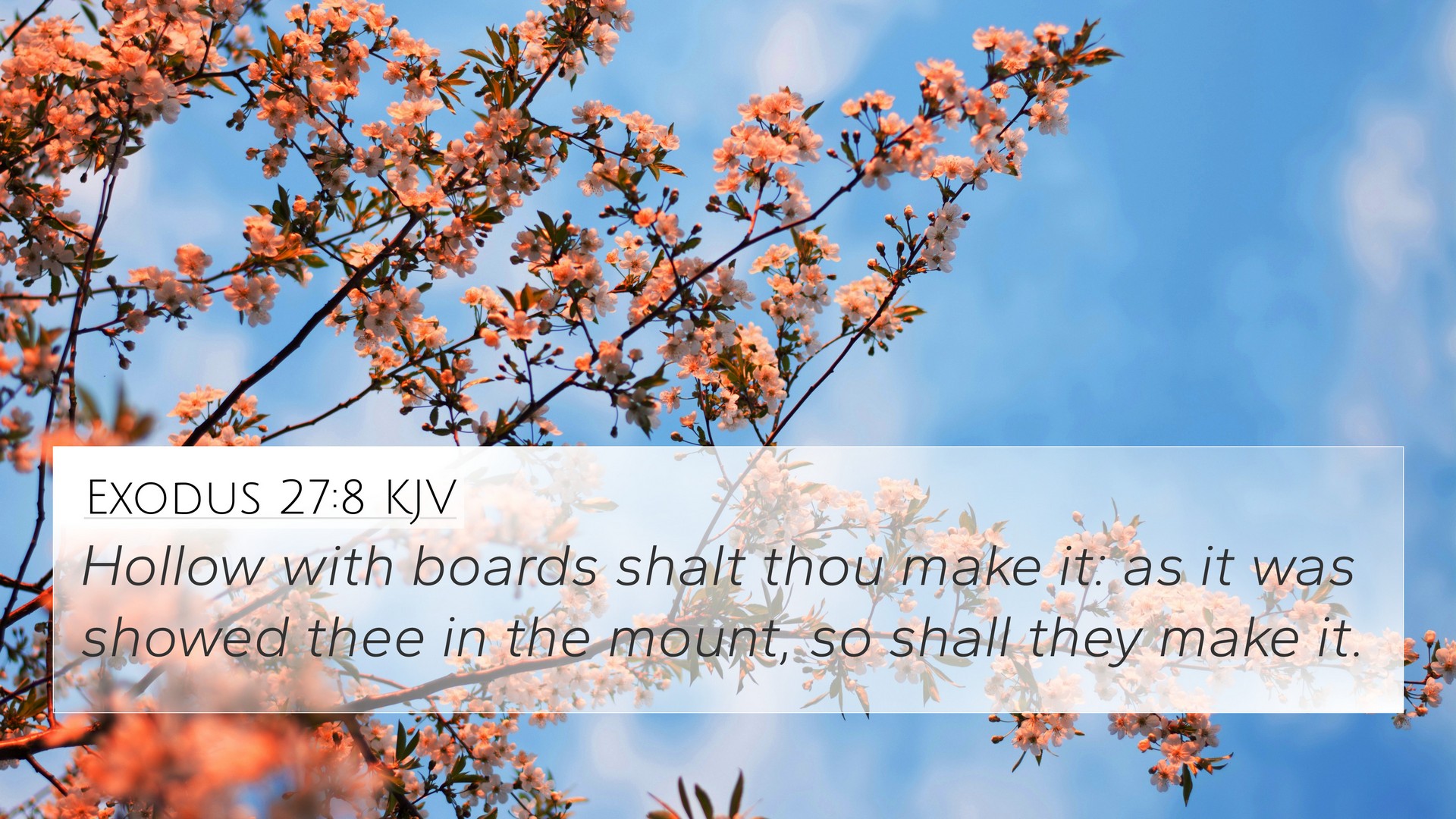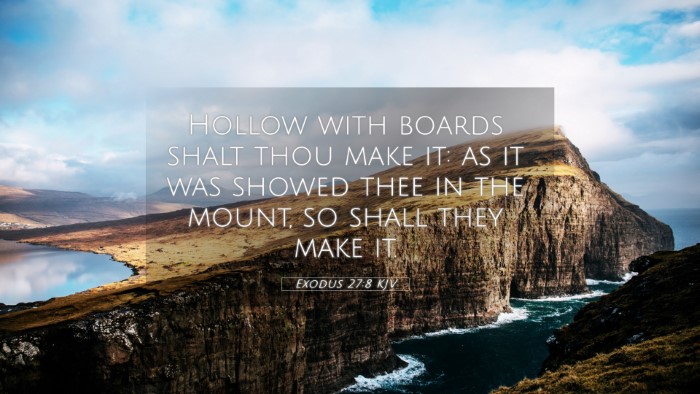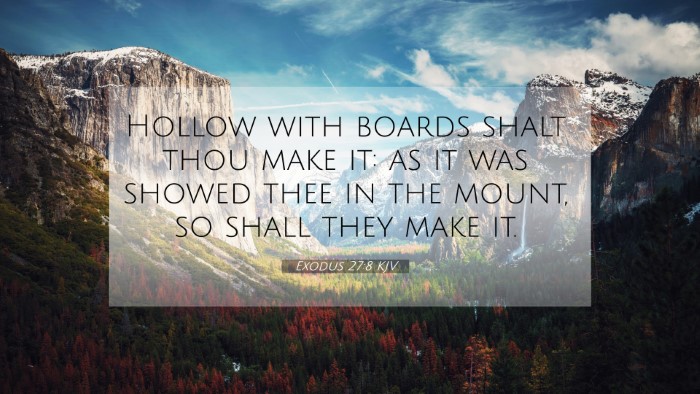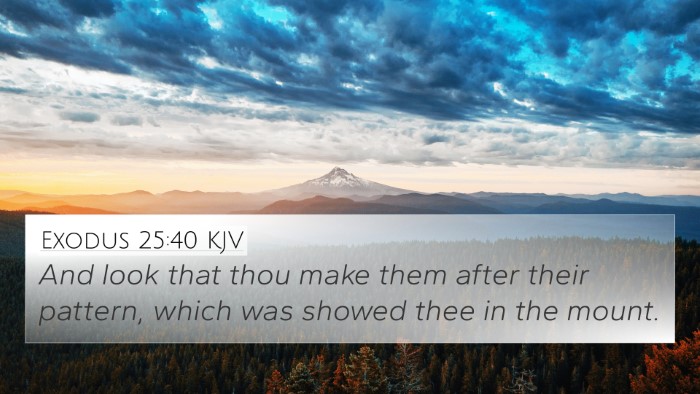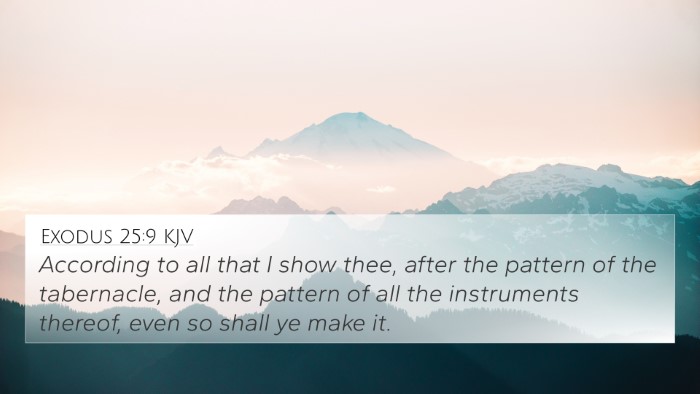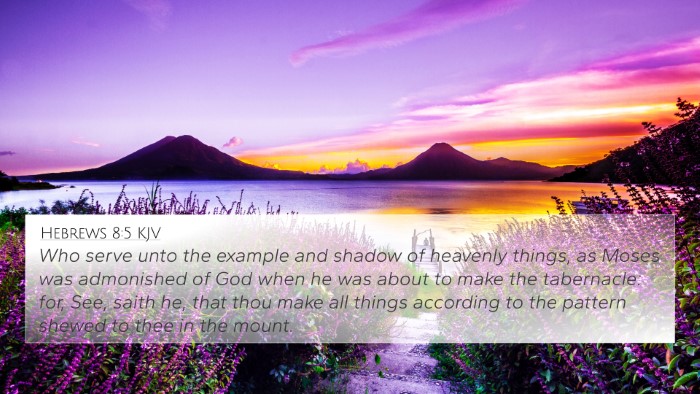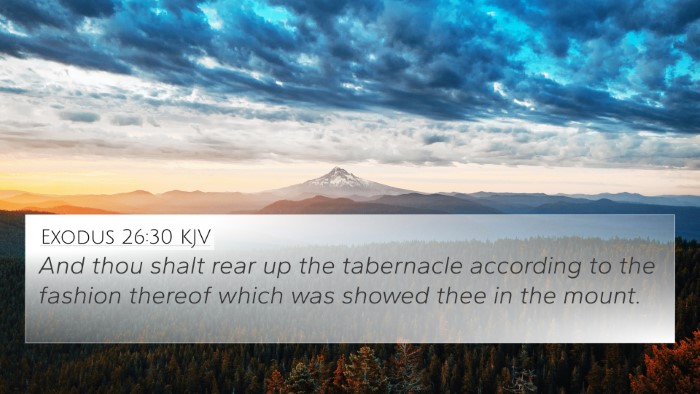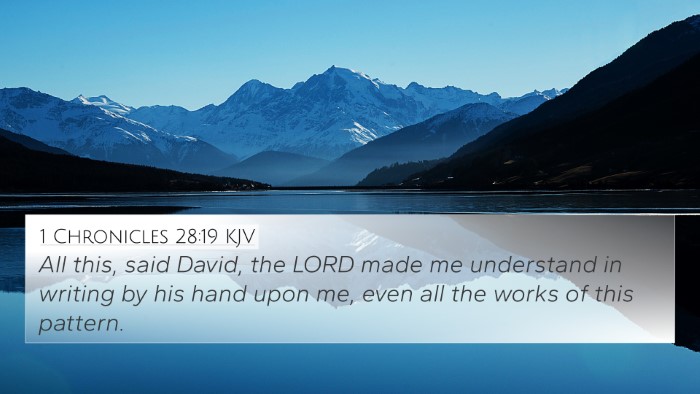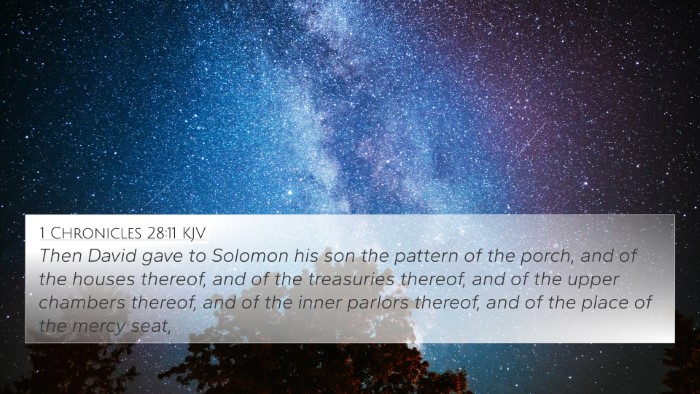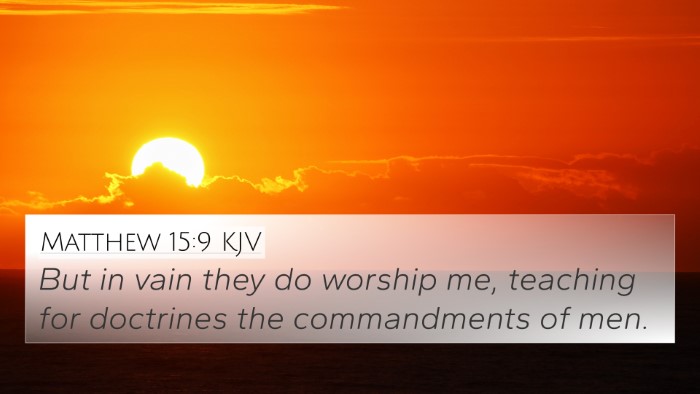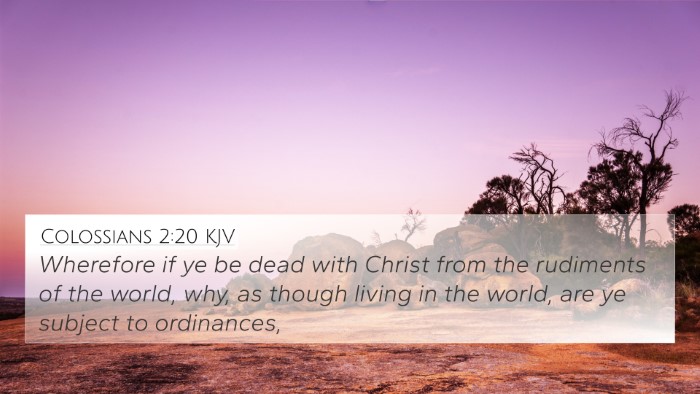Understanding Exodus 27:8: A Comprehensive Analysis
Exodus 27:8 states: "Hollow with boards shalt thou make it: as it was shewed thee in the mount, so shall they make it." This verse pertains to the instructions given by God to Moses regarding the construction of the altar for burnt offerings, emphasizing both the design and the adherence to divine specifications.
Significance of the Verse
This verse serves as a directive for the Israelites to construct the altar in a specific way, ensuring that its dimensions and materials are in accordance with God's revealed blueprint. The altar, described as being "hollow with boards," signifies a modest yet functional structure meant for worship and sacrifice.
Insights from Public Domain Commentaries
- Matthew Henry: Henry emphasizes the importance of obedience to God's commands, noting that the specifications given in the verse serve as a model for faithful worship practices. He highlights that the construction of sacred spaces should be done with care and reverence.
- Albert Barnes: Barnes elaborates on the significance of the altar's materials and shape, indicating that being "hollow" represents a time of preparation for sacrifice and a symbol of repentance. He insists that following God's instructions is paramount in establishing a rightful relationship with Him.
- Adam Clarke: Clarke interprets that the phrase "as it was shewed thee" reinforces the divine authority behind the construction. According to his commentary, it stresses the necessity of divine guidance in building places of worship, distinguishing secular constructs from sacred ones.
Thematic Connections
Exodus 27:8 connects with several broader themes within the Bible, including:
- Obedience to God's Commands: The detail-oriented instructions underline a recurring biblical theme about the necessity for believers to follow divine direction (Deuteronomy 5:32-33).
- Preparation for Sacrificial Worship: The altar exemplifies a place where sacrifices are made, which necessitates purity and proper constructs (Romans 12:1).
- Divine Revelation: The verse emphasizes that the instructions come from God's revelation, which reflects a key biblical tenet that God communicates guidelines to His people (Hebrews 8:5).
Related Bible Cross References
- Exodus 25:40: Discusses the importance of following God's pattern in making sacred objects, indicating a link to divine design.
- Hebrews 9:9: Mentions the tabernacle and its sacrifices, creating a connection between the Old Covenant practices and New Testament implications.
- Leviticus 1:1-9: Explains the purpose of the altar for burnt offerings, giving further insight into the sacrificial system.
- 1 Kings 6:2: Describes the construction of the temple, drawing parallels between the altar and other holy structures.
- Matthew 5:23-24: Encourages reconciliation before offering gifts at the altar, emphasizing its importance in worship.
- Romans 12:1: Calls believers to present their bodies as living sacrifices, reflecting the spiritual meaning of the physical altar.
- 2 Chronicles 3:1: Discusses the site for building the temple, linking to the holiness of worship places commanded earlier.
Exploring Cross-References and Connections
For those interested in cross-referencing Biblical texts, it is essential to explore tools available for a deeper understanding. A Bible concordance can assist in finding verses related to worship practices and the significance of sacrifice.
Using Cross-References for Greater Understanding
Cross-referencing can reveal connections between Bible verses and enhance comprehension of themes. Here are some methodologies:
- Bible Cross-Reference Guide: Utilizing guides to uncover links between connected themes or figures across scriptures.
- Comparative Bible Verse Analysis: Analyzing similar verses that discuss worship and sacrifice contributes to a holistic understanding.
- Bible Reference Resources: Employing resources designed for cross-referencing to study specific themes or narratives.
Conclusion
Exodus 27:8 serves as a foundational instruction that reverberates throughout the biblical narrative, reflecting deep themes of worship, obedience, and the importance of adhering to divine revelation. By studying Bible verses that relate to each other, believers can unearth a richer understanding of God's intentions and commands.
In summary, the verse invites readers to consider the solemnity of constructing places of worship as reflective of God’s expectations, encouraging communities and individuals to maintain a close relationship with their faith through adherence to His word.
